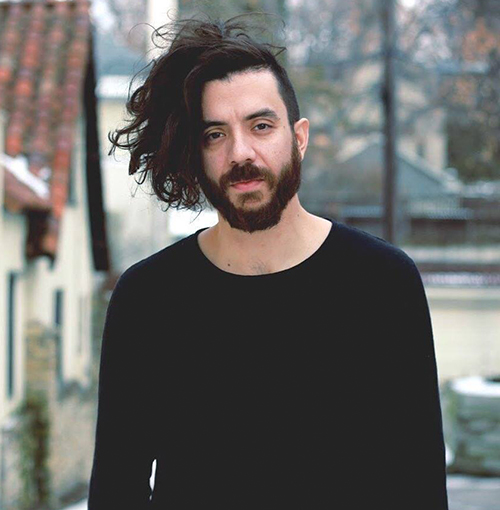
“It wasn’t until Gabriel squeezed away what was empty in him that the Prophet could be filled with miracle.”
These are the words of Kaveh Akbar in his poem “The Miracle,” from the collection “Pilgrim Bell.”
Akbar, who is known for being extremely earnest and easily caught up in the literature he’s reading, visited the Binghamton University Center for Writers virtually last Thursday to read from his own works — offering a glimpse into what inspired his poetry.
Akbar is an Iranian-American poet and scholar who’s currently teaching at the University of Iowa, Warren Wilson College and the master of fine arts (MFA) programs at Randolph College — also serving as poetry editor of “The Nation.” His first poetry book, “Calling Wolf a Wolf,” catapulted him into the modern literary canon in 2017, and his newest poetry collection, “Pilgrim Bell,” continues to receive high praise.
He was introduced by Omid Ghaemmaghami, director of the Middle Eastern and North Africa Studies Program (MENA), and Tina Chang, director of the creative writing department.
The first excerpt Akbar read was from “The Miracle,” drawing from a story detailing how the Quran came into existence. The poem starts by describing the angel Gabriel coming to the Prophet Muhammad and giving him the gift of literacy. As he read the piece, the words appeared to emerge rather than just being dispensed from a page. The moment it was over, Akbar shrunk back into the usual self-conscious writer’s shell and apologized for the strength of his reading. He prefaced the second poem as “by not-me people.”
“I spend a lot of time with myself and I’m a little over me,” Akbar said. “But, in the spirit of this being a ‘me’ moment, I want to shout out to the beginner of beginner, the earliest attributable author of our species is a Middle Eastern woman in current Iraq named Enheduanna, who was writing in ancient Sumerian, writing these hymns in 4300 BCE.”
Akbar praised the poem’s trot and lyricism, which sets this translation — by Jane Hirshfield — apart from other stiff and literal translations. The poem is included in the newly published “The Penguin Book of Spiritual Verse: 110 Poets on the Divine,” of which he is the editor.
Akbar then read another poem from “Pilgrim Bell” called “My Empire,” which was published in The New Yorker. As before, he was quick to remove himself from the spotlight once the poem closed, and introduced the audience to a poetry collection called “Bad Boats” by Laura Jensen, whom he called his “private pantheon poet.” As he read the first line of “Bad Boats,” Akbar — unable to hold himself back from his professor-instincts — stopped at the first line to marvel at the use of languages. He concluded the reading with another poem also called “Pilgrim Bell,” in a series of poems with the same name.
Chang started the Q&A by reading her favorite part from her marked-up and tear-stained copy of “Pilgrims Bell.” This spawned a conversation about recognizing “members of your tribe” in literature and the human nature of asking for help, even from members that had been gone long ago.
Akbar also talked about his struggling start at building his connections, getting rejected from MFA programs and being desperately hungry to talk about poetry — which led to him creating the DiveDapper website, which includes profiles of writers.
“If you just cold call Sharon Olds and ask to talk for an hour, she might say, ‘How’d you get this number?’” Akbar said. “But if you said, ‘Hey I’m the editor of this website you’ve never heard of,’ it’s marginally more legitimate. And that became my education.”
The session ended with Akbar talking about the pleasure of creating, or “having written” something that only exists because of one’s own mind, and the messy stage of writing before it actually becomes recognizable.
“The Palace went through a million different forms before I found what it is,” Akbar said. “I sent [my friend] the messy soup of that at some point. He had created these protovertebrae that became the biggest step of becoming the recognizable poem that it is. It took a defamiliarized set of eyes to recognize those protovertebrae.”


